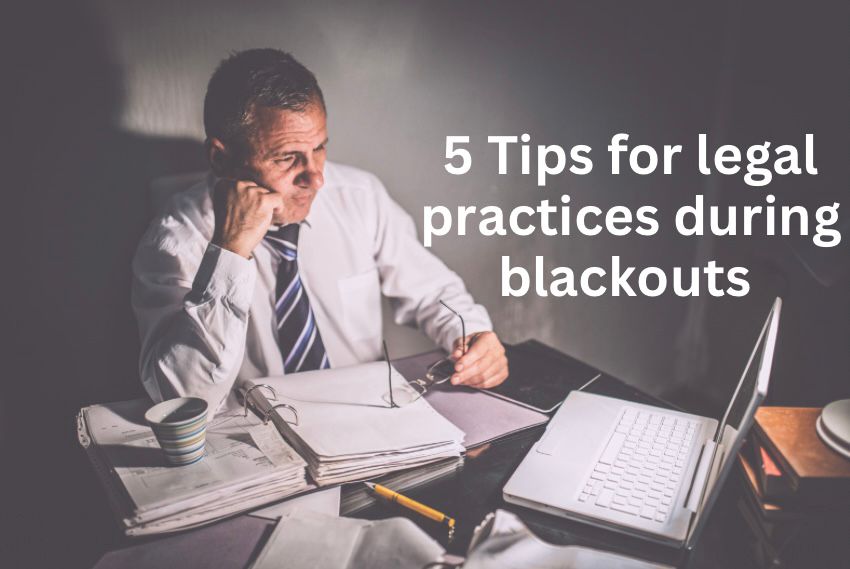
5 Tips for legal practices during blackouts
During this month, September 2022, international news has been dominated by the war between Ukraine and Russia and the passing of Queen Elizabeth in the UK. Locally, we are celebrating heritage month, but mostly South African’s are taking about the impact of loadshedding!
Businesslive.co.za reported on 14 September 2022 that South Africa already experienced 100 days of loadshedding this year. There is no quick fix according to our President and we must all adapt and tolerate these disruptions for the immediate future.
These rolling blackouts affect everyone in our country and our economy. Every legal practice requires electricity to operate. The purpose of this blog is to encourage our South African law firms to keep moving forward during this national energy crisis.
Here are 5 proposed steps:
Step 1: Monitor information about the crisis. Every crisis brings uncertainty. If we have accurate information, we can make the best decisions to lead our law firms. If you are not working solely on your own in your legal practice, consider appointing someone in your firm who will be responsible to look-out and report relevant news announcements to you and the office relating to schedules and changes of the different loadshedding stages affecting your work premises and/or internet access.
Step 2: Use available information to plan. Consider developing a written policy or electricity crisis management plan and rules for your legal practice relating to the different stages of loadshedding. For example, if you manage staff and operate from a commercial office, during stages 1 and 2, indicate which tasks should be prioritised during “normal working times” and which tasks must only be done during “loadshedding hours”, which do not require electricity, for instance filing. On stage 6 days, will working hours for fee-earners change or stay the same? At what stage will staff and/or attorneys for instance be allowed to work remotely from home or different premises. If you work on your own from home and are affected, your plan may include to go work at a co-work space or a public place, like a coffee shop, which WiFi continues to work during black-outs. Also, always keep laptops and phones charged to prepare and enable accessibility and off-line working during blackouts.
Step 3: Communicate. Consider how you will let your office team know that the crisis management plan kicks in. If blackouts may effect services to clients or responding to opposing colleagues in cases of litigation deadlines, consider how you will communicate the impact or obtain possible necessary extensions.
Step 4: Budget and invest in available solutions to limit impact on your firm’s operations. You could consider buying a generator, solar panels or an inverter. Considering that the on and off switching of local servers may pose risks, make sure you back-up data to a secure cloud server.
Step 5: Be humane and care for people. Everyone is frustrated with this crisis. Motivation, efficiency and productivity are likely to be affected. As leader of your legal practice, consider how you can support your staff and clients during this time. Remember slow progress is still progress. It is not a time to stand still. We must keep moving forward. Law is a serving profession and lawyers must continue to help create solutions, also to keep law and order during this difficult time in our country.
We made it through lockdown. We will also make it through this energy crisis. While this external factor impacting our legal practices are out of our control, there are still many things in our control and potential. We can decide how to deal with possible employment issues, review our budget, make plans, manage our clients and service levels and ask for help. You can also control your own thoughts, emotions, attitudes and behaviours. Decide not to hand over control on these aspects to external forces.
Well done if you already have an electricity crisis management plan in place. If you are interested to brainstorm your law firm’s electricity crisis plan or policy, you are always welcome to connect with me via email at emmie@lawyerfirst.co.za to set up a formal business coaching session. Let’s go win!
Emmie de Kock t/a LawyerFirst Lawyer Coach